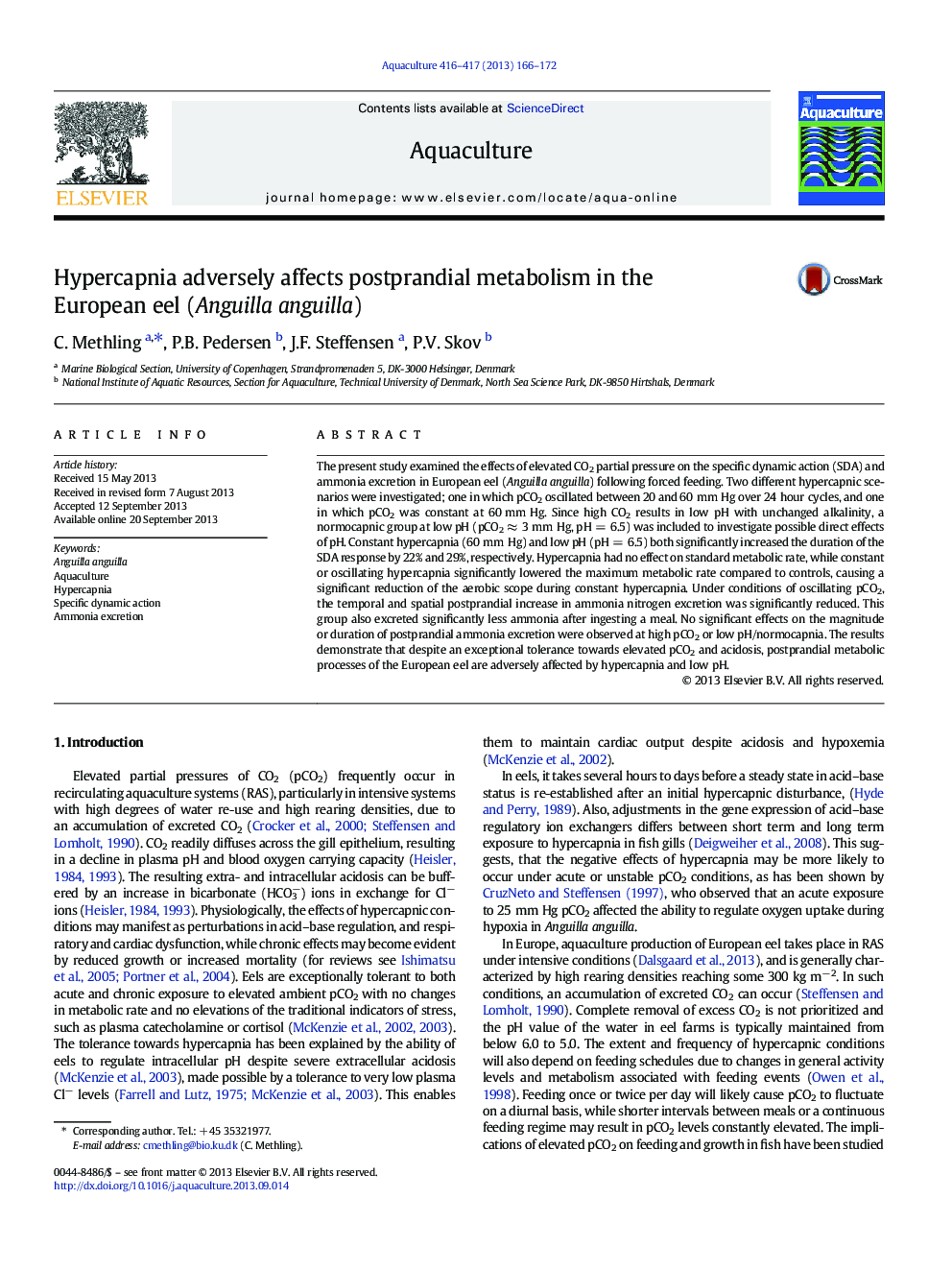| کد مقاله | کد نشریه | سال انتشار | مقاله انگلیسی | نسخه تمام متن |
|---|---|---|---|---|
| 2422051 | 1552865 | 2013 | 7 صفحه PDF | دانلود رایگان |

• The effect of elevated pCO2 on postprandial metabolism is investigated in A. anguilla.
• Hypercapnia prolongs the postprandial rise in oxygen consumption by ca. 22%.
• Hypercapnia reduces both the duration of and the total postprandial ammonia excretion.
• The results show an adverse effect of hypercapnia on postprandial metabolism in fish.
The present study examined the effects of elevated CO2 partial pressure on the specific dynamic action (SDA) and ammonia excretion in European eel (Anguilla anguilla) following forced feeding. Two different hypercapnic scenarios were investigated; one in which pCO2 oscillated between 20 and 60 mm Hg over 24 hour cycles, and one in which pCO2 was constant at 60 mm Hg. Since high CO2 results in low pH with unchanged alkalinity, a normocapnic group at low pH (pCO2 ≈ 3 mm Hg, pH = 6.5) was included to investigate possible direct effects of pH. Constant hypercapnia (60 mm Hg) and low pH (pH = 6.5) both significantly increased the duration of the SDA response by 22% and 29%, respectively. Hypercapnia had no effect on standard metabolic rate, while constant or oscillating hypercapnia significantly lowered the maximum metabolic rate compared to controls, causing a significant reduction of the aerobic scope during constant hypercapnia. Under conditions of oscillating pCO2, the temporal and spatial postprandial increase in ammonia nitrogen excretion was significantly reduced. This group also excreted significantly less ammonia after ingesting a meal. No significant effects on the magnitude or duration of postprandial ammonia excretion were observed at high pCO2 or low pH/normocapnia. The results demonstrate that despite an exceptional tolerance towards elevated pCO2 and acidosis, postprandial metabolic processes of the European eel are adversely affected by hypercapnia and low pH.
Journal: Aquaculture - Volumes 416–417, 5 December 2013, Pages 166–172